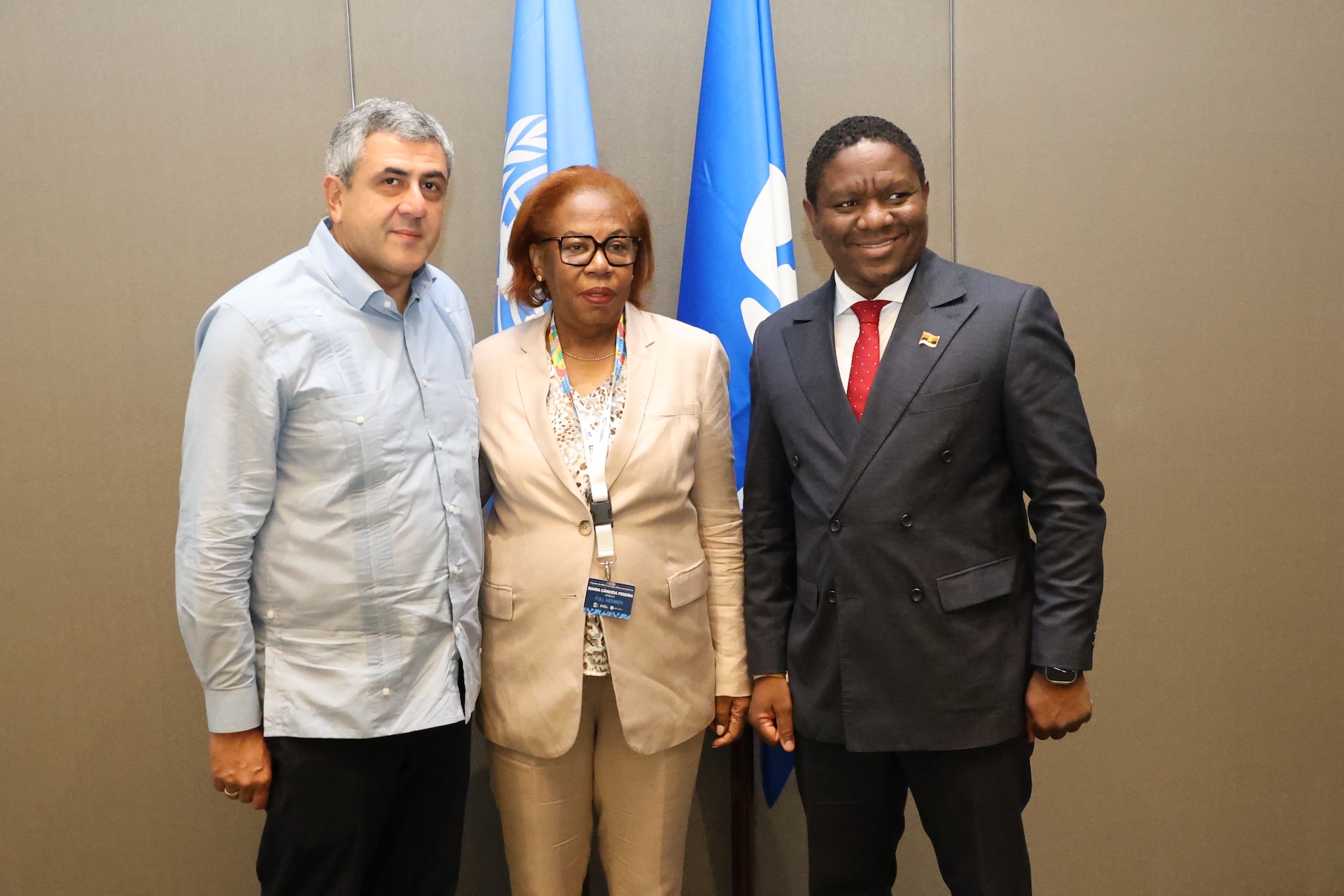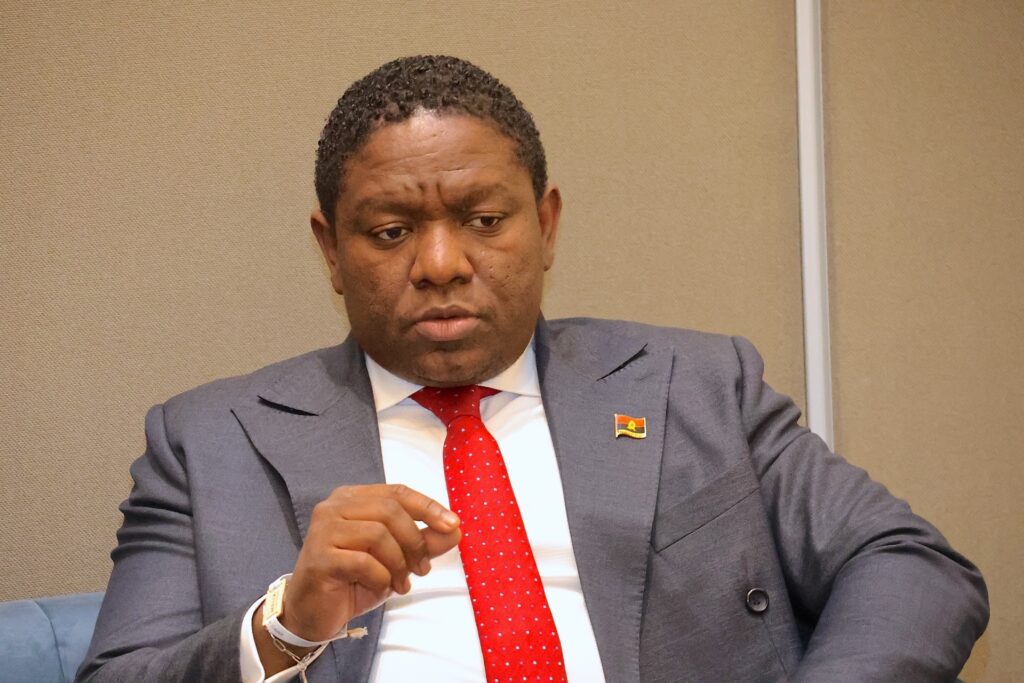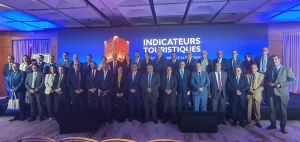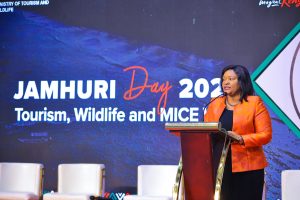Angola’s Minister of Tourism, Márcio De Jesus Lopes Daniel, reveals the country’s ambitious plans to transform its tourism sector into a vital pillar of economic diversification in an insightful discussion with VoyagesAfriq. With strategic initiatives aimed at revitalizing the sector, Lopes Daniel highlights Angola’s commitment to reducing its oil dependency and positioning tourism as a key driver of sustainable development.
From significant infrastructure projects to a game-changing visa exemption policy, the minister details how Angola is set to emerge as a vibrant and competitive destination on the African tourism map, inviting both domestic and international travelers to explore its rich cultural heritage and breathtaking natural landscapes.
VA: Can you tell us about the state of tourism in Angola?
Márcio: Tourism in Angola is currently undergoing a crucial transformation, guided by strategic frameworks outlined in the National Development Plan (PDN) 2023-2027 and the National Tourism Promotion Plan (PLANATUR) 2024-2027. These plans represent a bold vision to shift the country’s economic l away from oil by diversifying the economy and positioning tourism as a key pillar for sustainable development.
In recent years, the tourism sector has faced significant challenges, particularly highlighted by the sharp decline in its contribution to GDP — from 1.3% in 2016 to just 0.01% in 2022. Revenues from tourism also decreased, from USD 628 million in 2016 to USD 24 million in 2022, reflecting the need for urgent revitalization and strategic investment.
However, Angola’s government has set ambitious goals through its Long-Term Strategy (ELP), aiming to increase tourism’s contribution to 1.9% of GDP by 2050, with a substantial rise in international arrivals from 129,000 visitors in 2022 to 2 million per year by 2050.
Growth and Investment:
• Infrastructure Development: Significant efforts are underway to enhance tourism infrastructure, including the construction of hotels and the improvement of key tourism sites. A key milestone is the upcoming inauguration of Dr. Agostinho Neto International Airport in Luanda, which will serve as a major gateway for international visitors.
O. Additionally, the certification of airports in Benguela and Huíla is expected to be completed by the end of this year, positioning Lubango and Benguela as strategic hubs for both domestic and regional tourism. This will significantly enhance accessibility and connectivity, making Angola more attractive for travelers.
• Capacity Building: Several initiatives are focused on training tourism professionals to improve service quality and enhance the management of key tourist sites. This ensures that visitors have enriching and memorable experiences.
• International Promotion: Angola is actively promoting the “Angola Tourism” brand, participating in major tourism events and enhancing its digital presence to position the country as a unique and desirable destination on the global tourism map.
Challenges and Opportunities:
Angola still faces challenges related to international visibility and accessibility, which are critical to attracting more tourists. Additionally, modernizing the legal framework remains a priority to facilitate investments and tourism operations.
The recent visa exemption policy for 98 countries, implemented under Presidential Decree No. 189/23, is a game-changing reform. This policy aims to simplify travel to Angola, encouraging international visitors and reducing entry barriers. As these efforts progress, we expect a steady increase in tourist arrivals, contributing to the overall growth of the sector.
Economic Impact:
Tourism remains a sector with significant potential to become a key driver of economic growth in Angola. Our efforts are focused on increasing its contribution to GDP and ensuring that the industry becomes a sustainable and inclusive economic force. Additionally, the tourism sector is crucial for job creation, particularly for young Angolans, with continuous investments in education and professional training to prepare the next generation of tourism professionals.
VA: Tell us about your vision for the sector and how quickly are you moving to make travelling to Angola a seamless adventure.
Márcio: Our vision for Angola’s tourism sector is to position the country as a leading destination in Africa, offering visitors an unmatched combination of cultural richness, natural beauty, and authentic experiences. Tourism will play a pivotal role in the diversification of Angola’s economy, helping to reduce the dependence on oil and driving sustainable development through travel and hospitality. This vision aligns closely with the National Development Plan (PDN) 2023-2027 and the National Tourism Promotion Plan (PLANATUR) 2024-2027.
We are committed to transforming Angola into a seamless and attractive destination, ensuring that every stage of the visitor’s journey, from arrival to departure, is smooth, efficient, and memorable.
Steps to Make Travelling to Angola a Seamless Adventure:
1.Visa-Free Travel for 98 Countries:
A significant step toward facilitating travel was the introduction of the visa exemption policy for 98 countries, implemented under Presidential Decree No. 189/23. This measure allows visitors to enter Angola without a visa for up to 90 days, streamlining entry procedures and reducing bureaucratic hurdles. We are already seeing a positive impact with increased international arrivals, making it easier for travelers to explore Angola’s diverse landscapes.
2. Infrastructure Development:
O. Dr. Agostinho Neto International Airport: A major milestone is the upcoming inauguration of the Dr. Agostinho Neto International Airport in Luanda, which will begin receiving commercial flights in November 2024. With advanced facilities and increased capacity, this airport will serve as Angola’s primary gateway, enhancing international connectivity and cementing Luanda’s position as a regional hub for tourism and business.
O. Airport Certification in Benguela and Huíla: In addition, the certification of airports in Benguela and Huíla is expected to be completed by the end of the year. These developments will transform Lubango and Benguela into key regional hubs, providing seamless air connections for domestic and regional tourism.
3. Transport Connectivity: We are actively improving transport networks, integrating road, air, and rail systems to ensure smooth connections between key tourism sites. This will allow visitors to explore multiple destinations across the country with ease.
4. Digitalization and Technology Integration: To enhance the travel experience, we are embracing online visa services, digital platforms for booking accommodations and tours, and real-time travel information systems. These efforts will simplify trip planning and ensure a smooth journey for every traveler. Additionally, Angola’s expanded digital presence will attract more tourists by providing detailed travel guides and insights into our destinations.
5. Capacity Building and Service Excellence: Exceptional hospitality is essential to a seamless adventure. We are training tourism professionals and frontline staff to ensure high service standards, creating a visitor experience that reflects the warmth and hospitality of Angola’s culture.
6. Sustainable Tourism Practices: We are committed to promoting sustainable tourism, encouraging responsible travel and eco-friendly practices to preserve our natural and cultural heritage for future generations.
Timeline and Progress: Our progress has been swift and deliberate. The visa exemption policy is already in effect, and the Dr. Agostinho Neto International Airport will begin commercial operations in November 2024. Additionally, the certification of the Benguela and Huíla airports will be completed by the end of this year, further enhancing travel experiences and regional accessibility.
Our purpose is to transform Angola into a complete and engaging tourism experience, where every moment of the journey flows seamlessly, from arrival at the airport to exploring our most authentic destinations. By investing in modern infrastructure, implementing strategic legal reforms, and maintaining consistent international promotion, we are confident that Angola will establish itself as one of the most attractive and competitive tourism destinations in Africa, offering visitors unforgettable and genuine experiences.

VA: How do you intend to diversify Angola’s economy with tourism?
Márcio: Tourism plays a central role in Angola’s strategy to diversify its economy, as outlined in the National Development Plan (PDN) 2023-2027 and the National Tourism Promotion Plan (PLANATUR) 2024-2027. Our objective is to transform tourism into a pillar of economic growth, reducing the country’s reliance on oil revenues and driving sustainable development through cultural, natural, and adventure tourism.
Our approach to diversifying Angola’s economy with tourism is built on four key pillars:
1. Promoting Domestic and Regional Tourism:
We are committed to developing domestic tourism, encouraging Angolans to explore the country’s diverse cultural and natural attractions. Through affordable packages and improved transport connectivity, we also aim to attract visitors from neighboring countries.
Efforts to certify the Benguela and Huíla airports, along with the development of the Lubango hub, will significantly improve regional connectivity. Furthermore, the inauguration of the Dr. Agostinho Neto International Airport in Luanda, scheduled to begin commercial operations in November 2024, will position the capital as a key gateway for both regional and international travelers, boosting both leisure and business tourism.
2. Diversifying Tourism Offerings: Our goal is to provide a broad range of tourism experiences that celebrate Angola’s cultural and natural treasures. Key attractions and areas of focus include:
• Music and Dance Tourism: Angola’s vibrant musical heritage, including Kizomba, Semba, and Kuduro, attracts fans and dancers from around the world. We are developing festivals, workshops, and events to showcase these traditions, making music and dance central elements of our tourism strategy.
• Cultural and Heritage Tourism: Angola offers unique cultural experiences, such as the Kulumbimbi site in Mbanza Kongo, a UNESCO World Heritage Site, which gives visitors a deep understanding of Angola’s historical roots.
• Adventure and Nature Tourism: The Namibe Desert provides thrilling opportunities for adventure seekers, from dune safaris to stargazing and camping. Birdwatching enthusiasts will find Angola’s rich ecosystems teeming with birdlife, while initiatives in Kissama National Park and along the Okavango Basin cater to eco-tourists.
• Water and Beach Tourism: Angola’s stunning coastline, including the beaches of Cabo Ledo, is perfect for beach lovers and surfing enthusiasts. Cabo Ledo is fast becoming a hotspot for water sports, attracting surfers from around the world.
• Waterfalls and Natural Wonders: The Kalandula Falls, the second-largest in Africa, are among Angola’s most breathtaking natural attractions. This iconic site offers a majestic backdrop for both adventure tourism and photography, drawing visitors eager to experience Angola’s natural beauty.
By diversifying our offerings, we aim to attract a variety of market segments, from music lovers and cultural enthusiasts to adventure travelers and eco-tourists, ensuring Angola stands out as a diverse and dynamic destination.
3. Stimulating Investments and Job Creation: Tourism is a vital sector for job creation, especially for young people, offering opportunities across hospitality, transportation, and cultural industries. We are fostering private sector investments through tax incentives and streamlined business licensing processes, making it easier for investors to engage in tourism projects.
Developing hotels, resorts, and eco-lodges is a priority to meet growing accommodation demand and strengthen the tourism value chain. We are also investing in professional training programs to ensure that Angola has a skilled workforce capable of delivering world-class service and hospitality.
4. Promoting Sustainable Tourism and Environmental Preservation: We are committed to sustainable tourism to ensure that economic growth does not compromise Angola’s natural and cultural heritage. Eco-friendly practices and community-based tourism initiatives are central to our strategy, ensuring that tourism benefits local populations while preserving Angola’s rich biodiversity and heritage.







